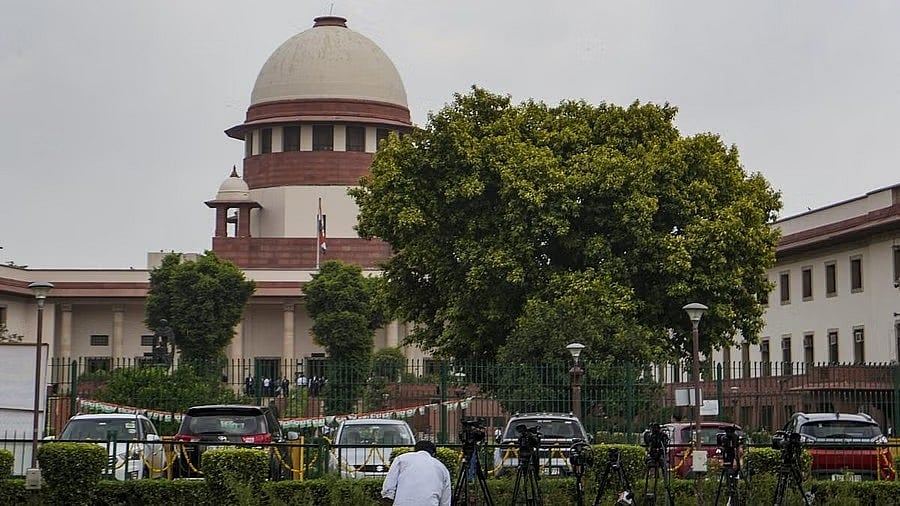
The Supreme Court of India.
Credit: PTI File Photo
New Delhi: The Supreme Court on Tuesday said ground realities have to be considered, as the resolution for the issue cannot be done on just the basis of the law, as it considered the Sutlej-Yamuna Link (SYL) Canal dispute between Punjab and Haryana, persisting for decades.
A bench of Justices B R Gavai and Justice Augustine George Masih, however, noted the Punjab government’s “highhandedness” in refusing to implement the top court’s order to construct its part of SYL Canal and de-notifying the land acquired for the purpose.
Senior counsel Shyam Divan for the Haryana Government contended that the apex court’s 2002 decree requiring Punjab to construct its part of SYL Canal has to be implemented. The court said that ground realities would have to be considered and these matters cannot be decided only on the basis of law.
“It’s not like a paper decree between two brothers that half of the land has to be allotted to each of them…The ground realities… what was the situation in Punjab for the last so many years,” the bench said.
Divan argued that people have to obey the orders of the court, and there cannot be a situation where after the decree, states unilaterally overturn the decree.
The Haryana government counsel contended it sent a very wrong message and asked the court to decide the matter, contending that Punjab has taken the law into its own hands.
Additional solicitor general Aishwarya Bhati, representing the Centre, submitted before the bench that effective steps have been taken to resolve the issue amicably.
Turning towards Punjab, the bench said, “They (Haryana) discharged their duty and constructed a 100 km canal but you Punjab did not construct the 90 km you had to.”
The court asked the Punjab government, if it was not the act of highhandedness that once the decree was passed for construction of the canal, the land was de-notified which was acquired for the construction of the canal.
The bench told senior advocate Gurminder Singh, appearing for Punjab, that this is trying to defeat the decree of the court.
The Punjab government counsel contended that it is an emotive issue with the public and it is essential to explore alternative measures.
“Punjab, being a border state, could not afford this unrest on this issue. It is not as simplistic as Haryana is trying to put,” Singh submitted.
After hearing submissions, the bench directed Punjab and Haryana to cooperate with the Centre in reaching an amicable solution on the SYL canal dispute. The bench said it would hear the matter on August 13, if the dispute is not resolved.
The apex court in November 2016, declared the law passed by the Punjab assembly in 2004 terminating the SYL canal water-sharing agreement with neighbouring states unconstitutional. In early 2017, Punjab returned land—on which the canal was to be constructed—to the landowners.
